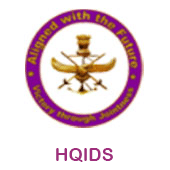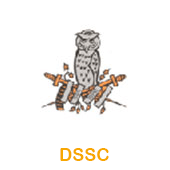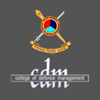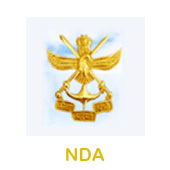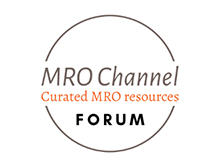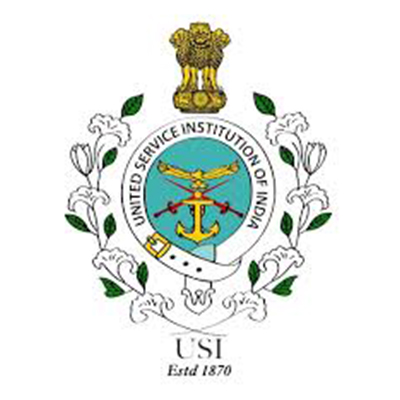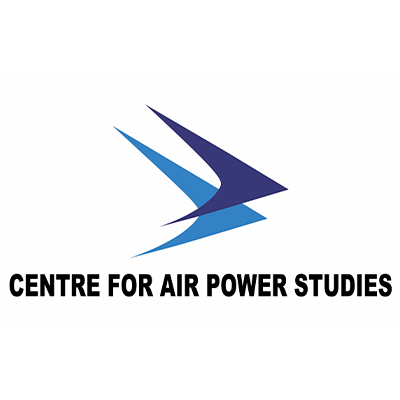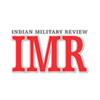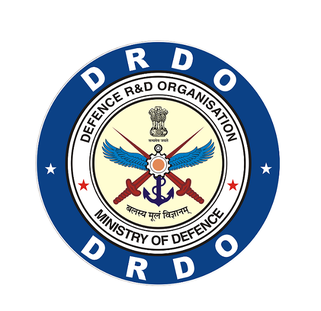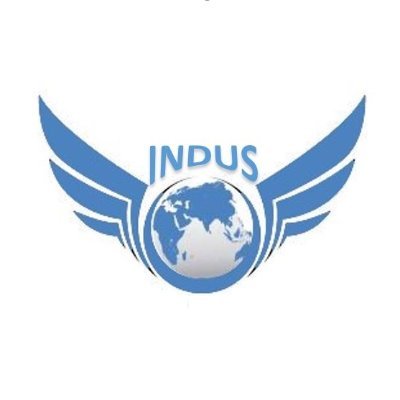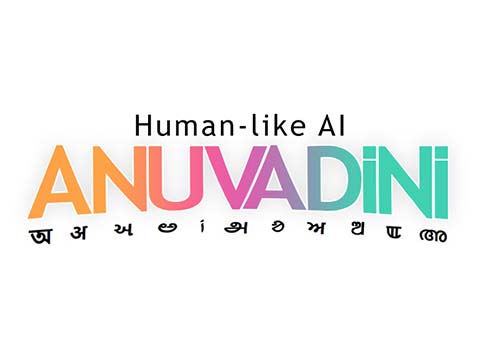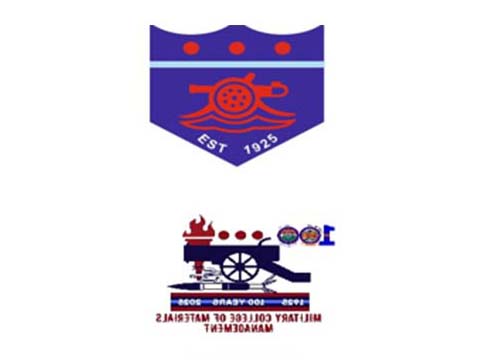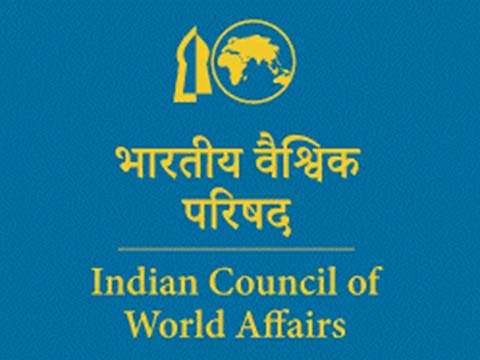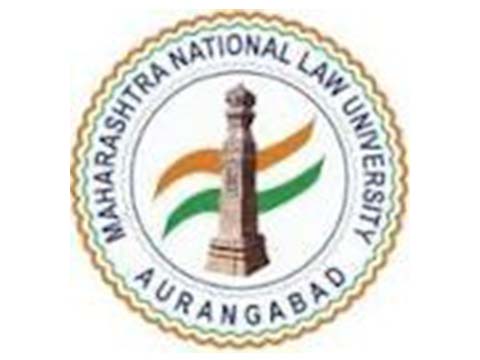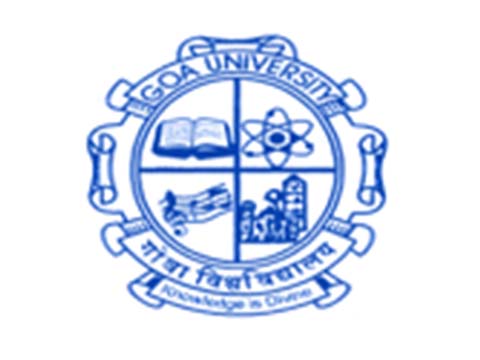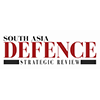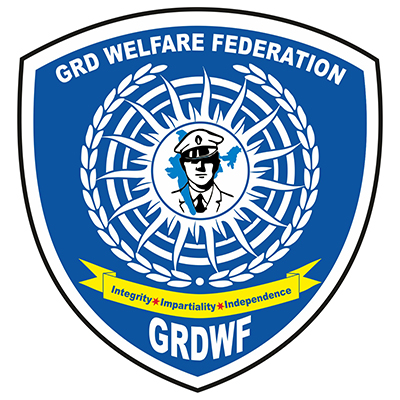Seminar | 10-11-Dec-2019
Posted on | 31-Dec-2019
PROCEEDING OF RUSSIAN DELEGATION BY GP CAPT RAJESH BHANDARI ON 10-11 DEC 2019
Introduction
1. A two days interaction between Defence Oriented Think Tanks of India and Russia as part of Defence Cooperation Plan-2019 was conducted at Manekshaw Centre, New Delhi on 10 and 11 Dec 2019. The Indian delegation comprised of the Centre of Joint Warfare Studies (CENJOWS) Team headed by Lt Gen Vinod Bhatia, PVSM, AVSM, SM (Retd), Director, CENJOWS and included Lt Gen Arun Kumar Sahni, PVSM, UYSM, SM, VSM (Retd), Shri Ajay Malhotra, Former Indian Ambassador to Russia, Mr Sanjay Singh, Former Indian Ambassador to Iran and Maj Gen BK Sharma, VSM, SM** (Retd). The Russia delegation was led by a Maj Gen Aleksandr V. SERZHANTON and comprised six other officers from Russian Armed Forces. The key note address to commence the workshop was delivered by Lt Gen AS Bedi, UYSM, YSM, VSM, DGDIA & DCIDS (INT), followed by theme address byMr Roman Babushkin Deputy Chief of Mission (DCM) of Russian Embassy in India.
Inaugural Session
2. Lt Gen Vinod Bhatia, PVSM, AVSM, SM (Retd), Director CENJOWS welcomed the Russian delegation, eminent participants and other audience. He quoted that forty eight years back India won a famous victory over Pakistan due to Brave Indian soldiers, an unwavering political leadership and strong diplomatic support from Moscow. It was then Soviet Union which stood by India as a deterrent to US Seventh Fleet for any unnecessary intervention. Russia has been a longstanding and time tested partner for India. He brought out that India-Russia relationship is one of deep friendship and mutual confidence that would not be affected by transient political trends. Russia has been a pillar of strength at difficult moments in India’s history. India will always reciprocate this support. Also, Russia is and will remain most important defence partner and a key partner for energy security. India and Russia have historically enjoyed close and friendly relations through beneficial engagement in key areas of mutual interest, including trade & investment, infrastructure, defence, security, energy security and extensive people to people contacts.
3. Lt Gen AS Bedi, UYSM, YSM, VSM, DGDIA & DCIDS (INT), while delivering the keynote address, brought out that relations with India have always been one of the most important foreign policy priorities of India. He stated that this Defence Oriented Think Tanks Interaction of India and Russia for two days as part of Defence Cooperation Plan-2019 would expand the experience as well as promote mutual understanding further between both countries. The mutual ties of friendship are filled with trust and openness. The understanding between these two countries is indeed the common heritage of the people from India and Russia. The relationship is valued and cherished by both countries in Russia and India. Advanced level of the Russian-Indian Military and Technical Cooperation historically constitute one of the pillars of the Strategic partnership between these two countries. Indian Defence is equipped with maximum hardware provided by the Soviet Union and Russia. The Soviet Union was an important supplier of defence equipment for several decades, and this role has been inherited by the Russian federation. A separate Inter-Governmental Commission on Military and Military Technical Cooperation is already established in 2018 and first meeting took place in November 2019 in Moscow with participation of Hon’ble Defence Minister, Shri Rajnath Singh. The special and privileged strategic partnership between India and Russia is a testimony of the advance level of the bi-lateral relations. Both countries are expanding military relationship and holding every year a large scale Exercise “Indra” with combined participation of all the three services.
4. Mr Roman Babushkin, Deputy Chief of Mission (DCM), Russian Embassy in India conveyed his gratitude to CENJOWS and HQ IDS for inviting him to share the panel together at such an important event. He stated that this Interaction for two days between Defence ThinkTanks of Russia and India will further expand the experience as well as promote mutual understanding. Russia has strong opinion that the dialogue is the main tool to ensure stability of the relationship. It is unique, consistent and mutually beneficial by nature, encompassing all possible areas of cooperation. He stated that Indian Defence is equipped with about 60-70 percent of hardware provided by the Soviet Union and Russia and contract for new sophisticated weapons like S-400 Air Defence Systems Supplies and Joint production of Ka-226, Kalashnikovas Machine Gunsetc in India are also signed. This relationship is based on similar civilizational values, time-tested friendship, mutual understanding, trust, common interest and proximity of approaches to the fundamental issues of development. India-Russia ties have successfully coped with the turbulent realities of the contemporary world. They have never been susceptible to outside influences. Development of the entire gamut of India-Russia relations is a foreign policy priority for the both countries. That explains why leaders of both India-Russia, who also enjoy strong personal chemistry, meet each other several times per year for annual bilateral summits as well as on the side lines of major International events such as G20, BRICS, SCO, EAS etc. In 2020, Russia will be hosting more than 120 events during the Russian Presidency in BRICS and numerous meetings as the chair-country in the SCO. Along with traditional annual Bi-lateral Summit with India, Russia is looking forward to welcoming Prime Minister Modi to attend celebration on 09 May 2020 in Moscow’s Red Square dedicated to the 75th Anniversary of the Victory in the Great Patriotic War over fascist Germany, which was the major contributor to the end of the World War-II. Moreover, in 2020, Russia will be celebrating the 20th Anniversary of the Declaration of the Strategic Partnership and 10th Anniversary since Russia and India became Special and Privileged Strategic Partners.
SESSION – 1
5. The Russian delegation head Maj Gen Aleksandr V. SERZHANTON stated that Russia and India always enjoys their last longing friendship. He stated that this Defence Oriented Think Tank Interaction of India and Russia would promote mutual understanding further between these countries. Both countries are members of many international bodies where they collaborate closely on matters of shared national interest. Important examples include the UN, BRICS, G20 and SCO. Russia has also expressed interest in joining SAARC with observer status in which India is a founding member. In the international arena both countries have similar positions and coordinate their actions. He further stated that Russia cooperate closely within the United Nations, BRICS and G-20 groupings, as well as in the various structures in the Asia Pacific region such as ASEAN and East Asia Summit Forum. Russia supported India’s membership to the SCO and India was admitted as a full member of SCO in 2017. The unique political proximity between the nations is reflected in congruence in global priorities. Both the countries share similar views on fighting terrorism without double standards, a more representative multi-polar world order based on international law with UN playing a central role, and resolving threats to international peace and security. Russia supports India’s permanent membership of the United Nations Security Council. On Syria and Afghanistan, both countries have called for resolute action to bring about a lasting and peaceful solution, and defeating the forces of terrorism. Also, both countries cooperate on other global challenges such as cyber security, preventing weaponisation of outer space and prevention of weapons of mass destruction.
6. The first speaker of the session was Shri Ajay Malhotra, Former Indian Ambassador to Russia who stated that relations between India and Russia are rooted in history. Diplomatic relations between India and Russia began on 13 April 1947, even before India achieved independence. In the period immediately following independence the goal for India was attaining economic self-sufficiency through investment in heavy industry. The Soviet Union invested in several new enterprises in the areas of heavy machine-building, mining, energy production and steel plants. During India’s second Five Year Plan, of the sixteen heavy industry projects set up, eight were initiated with the help of the Soviet Union. This included the establishment of the world famous IIT Bombay. A watershed moment in relations between India and the Soviet Union was the signing of the Treaty of Peace and Friendship in August 1971. After the dissolution of the Soviet Union, India and Russia entered into a new Treaty of Friendship and Cooperation in January 1993 and a bilateral Military-Technical Cooperation agreement in 1994. In 2000, during the visit of President Putin to India, the partnership acquired a new qualitative character, that of a Strategic Partnership. The strategic partnership institutionalized annual meetings between the Prime Minister of India and the President of Russia and meetings have been held regularly since then. The last Russia-India summit on 04-05 Sep 2019 in Vladivostok was a remarkable development in the cooperation between the two great countries and opened up a new page with focus on complementarity and synergy of development strategies. Indeed, along with traditional advanced areas of interaction such as Energy, Science and Technology, Military and Technical Partnership, Extensive people to people contact, India and Russia are moving towards further expansion of multifaceted relations by enhancing cooperation in the Russian Far East. Potentially, this is a game changing move. Indian Defence is equipped with maximum hardware provided by the Soviet Union and Russia. Nuclear Power Cooperation is another area which both countries are proud of. Russia as of now is the only foreign country in India being in practical terms involved in construction of Nuclear Reactors at Kudankulam, Tamil Nadu. In 2020, Russia and India expect many high levels of opportunities to further expand the cooperation between these two countries. The friendship and strategic partnership between Russia and India is time tested, and which enjoys the support of the people of both countries.
7. As a second speaker, Delegate from Russia spoke on Shanghai Cooperation Organization (SCO), its features and prospects of cooperation with India. He brought out that SCO is an international alliance, created on 15 June 2001 in Shanghai, China by the leaders of Russia, China, Kazakhstan, Kyrgyzstan, Tajikistan, and Uzbekistan. SCO goals and tasks were at that time to strengthen mutual trust, friendship and good relationship between the member States. Also, it is facilitating comprehensive and balanced economic growth, social and cultural development in the region through joint actions on the basis of equal partnership aimed at steady increase of living standards of the peoples of the member States, multifaceted cooperation in the maintenance and strengthening of peace, security and stability in the region, promotion of a new democratic, fair and rational political and economic international order. India was admitted as observer in 2005. By 2007 the SCO had initiated over twenty large-scale projects related to transportation, energy and telecommunications and held regular meetings of security, military, defence, foreign affairs, economic, cultural, banking and other officials of its member states. In July 2015 in Ufa, Russia, the SCO decided to admit India as full member. India signed the memorandum of obligations in June 2016 in Tashkent, Uzbekistan, thereby starting the formal process of joining the SCO as full member. As a member India gets the opportunity to position itself as both a maritime and a continental power and a major player in the Eurasian and Indo-Pacific regions, long-term Russia-India Military and Technical cooperation.As an SCO member, India have a bigger say in pressing for concerted action in dealing with terrorism as well as on issues relating to security and defence in the region.The friendship between Russia and India has further strengthen after India became member of SCO.
8. Maj Gen BK Sharma, VSM, SM** (Retd), the third speaker in the first session spoke on Future of Afghanistan and Challenges Ahead. He brought out that Afghanistan is a landlocked multi-ethnic country located in the heart of South-Central Asia, lying along important trade routes connecting Southern and Eastern Asia to Europe and the Middle East. Afghanistan has long been a prize sought by empire builders, and for millennia great armies have attempted to subdue it, leaving traces of their efforts in the wake of great monuments now fallen to ruin. The country’s forbidding landscape of deserts and mountains has laid many imperial ambitions to rest, as has the tireless resistance of its fiercely independent people—so independent that the country has failed to coalesce into a nation but has instead long endured as a patchwork of contending ethnic factions and ever-shifting alliances. Afghanistan’s population is divided into several ethnolinguistic groups. Afghanistan is an Islamic republic consisting of three branches, the executive, legislative, and judicial. The National Assembly is the legislature, a bicameral body having two chambers, the House of the People and the House of Elders. In late September 1996, the Taliban, in control of Kabul and most of Afghanistan, proclaimed the Islamic Emirate of Afghanistan. The Taliban were condemned internationally for the harsh enforcement of their interpretation of Islamic sharia law, which resulted in the brutal treatment of many Afghans, especially women. During their rule, the Taliban and their allies committed massacres against Afghan civilians, denied UN food supplies to 160,000 starving civilians and conducted a policy of Scorched Earth, burning vast areas of fertile land and destroying tens of thousands of homes. From 1996 to 2001, the Al-Qaeda network of Osama bin Laden and Ayman al-Zawahiri was also operating inside Afghanistan. Around 400,000 Afghans died in internal conflicts between 1990 and 2001. The US launched the October 2001 Operation Enduring Freedom. The majority of Afghans supported the American invasion of their country. During the initial invasion, US and UK forces bombed Al-Qaeda training camps. Working with the Northern Alliance, the US removed the Taliban from power.The security situation has worsened in recent years, with rates of civilian casualties reaching record highs in 2018. A flawed and contested parliamentary election in October 2018 and uncertainty around the presidential election in September 2019 have furthered political instability. The humanitarian situation also remains dire, as the possibility of a prolonged drought and other resource scarcity issues threaten greater levels of displacement and human suffering.Much to India’s chagrin, U.S. and Russia have accepted the idea that peace in Afghanistan is not possible without major concessions to the Taliban. For India, which has built on its centuries-old ties with Afghanistan with $3 billion in development assistance over the last 10 years, the spectre of a Pakistan proxy in power in Kabul is now looming large. India aims to secure its own strategic and economic interests in Afghanistan while backing the position taken by the government in Kabul on the talks. Peace and stability in Afghanistan is paramount for operationalization of Transit and Energy Corridors and for regional Economic and Cultural Integration of Eurasia. There is a need for Shedding of Zero Sum Game and Cold War mentality in favour of Cooperative engagement.
SESSION – 2
9. The second session of the interaction began with Mr Sanjay Singh, Former Indian Ambassador to Iran highlighting the Current Situation in West Asia and the way Ahead for Peace and Stability. He stated that the West Asian region is afflicted by violence and facing several other challenges. Tension in Persian Gulf is most serious concern and involving Iran in conflict would be devastating for region and harmful for global economy. To ensure stability in the region, the priority should be accorded to avoid any conflict in the Gulf. Contradictory images of West Asia are common and currently it is facing political, socio-economic and security challenges. The key geopolitical challenges today includes continuing violence in Iraq, Yemen and Syria, unsolved Palestinian-Israeli conundrum, deepening divide between Iran and Saudi Arabia, counterproductive actions by Israel and Turkey. This needs intervention of the world. The other issues are the proliferation of radical extremist groups (e.g. Da’esh) and their future in the region and beyond, proliferation of WMDs, Terrorism and Drug and human trafficking especially from North Africa. Iran is weakened by sanctions, but its influence continues to spread and this is leading to increasing tension in the Persian Gulf and may create considerable difficulties for other gulf states. Russia is re-emerging as a key player. Increasing engagement of Asian Countries especially China and India is need of thehour. However, USA administration policy towards the region is increasingly transactional and its sanctions on Iran and unqualified support for Israel have increased regional instability. West Asia is in India’s extended neighbourhood and important common security interests include fighting extremism and terrorism, piracy and protecting SLOCs. The common economic interests include as Trade, Investments, Energy supply and welfare of Indian expatriates in the region. India views regional peace and stability as vital. However, Peace and stability in the region will require wide-ranging understanding between all involved parties. He finally stated that major powers must try to prevent a region-wide conflagration and promote dialogue. India is always willing to contribute towards promoting stability, but on its own terms.
10. The second speaker of Russian DelegationColonel Dmitry Kozlov, leading researcher of the Centre for Military and Strategic Studies of the Military Academy of the General Staff of the Armed Forces of the Russian Federation spoke on Syria’s reconstruction experience and post-conflict settlement. He commenced his presentation with a quote of President Putin that “We are fully aware of this reconciliation process being very complex and controversial. However, there is no other way exists, but to reach a peaceful settlement.” The speaker further stated that in Syria, it is necessary to restore infrastructure and economy and to solve humanitarian problems. Without such focus, it is not possible to ensure the mass return of refugees from abroad. Iran, Russia and Turkey reiterate their full respect for sovereignty, independence, unity and territorial integrity of the Syrian Arab Republic as multi-ethnic, multi-religious, non-sectarian, democratic and secular state. The goal of post-conflict settlement (PCS) is to create the environment and conditions for peaceful restoration of socio-political, economic, social and communication structures of Syrian Arab Republic civil society. He stated that full disarmament of civil population, assistance in the restoration and maintenance of basic life support systems, infrastructure and civil society institutions should be first priority towards re-building of Syria. Russia is sure that there could be no military solution to the Syrian conflict and reaffirmed their commitment to advance the Syrian-led and Syrian owned UN-facilitated political process in line with the UN Security Council resolution. The military stage of the conflict is now over as well as the large-scale operations being conducted in the country. A mechanism for the political settlement of the Syrian conflict and the reconciliation of the opposition parties has also been launched. Russian has given Syrian people faith in the possibility of peaceful life. A memorandum has also signed to establish four separate de-escalation zones in Syria. The Syrian National Dialogue Congress initiative fully supported the creation of working group for the release of detainees and hostages. Medical specialists of the Ministry of defence of the Russian Federation provided assistance to 1, 06,212 residents of Syria. 19,46,570 people came back to their places of origin, including 13,06,091 IDPs and 6,40,479 from neighbouring countries.
11. The third speaker of the Second Session Lt Gen Arun Kumar Sahni, PVSM, UYSM, SM, VSM (Retd) highlighted Implication of China-Pakistan Economic Corridor (CPEC) on Security of South Asia and Global Realities. China-Pakistan Economic Corridor is a framework of regional connectivity and will not only benefit China and Pakistan but is going to have positive impact on Iran, Afghanistan, India, Central Asian Republic, and the region. This Economic Corridor is a journey towards economic regionalization in the globalized world and the project is currently under construction throughout Pakistan. Originally valued at $46 billion, the value of CPEC projects is worth $62 billion as on 2017. CPEC is intended to rapidly upgrade Pakistan’s required infrastructure and strengthen its economy, with the construction of modern transportation networks, numerous energy projects, and special economic zones. On 13 November 2016, CPEC became partly operational when Chinese cargo was transported overland to Gwadar Port for onward maritime shipment to Africa and West Asia. A vast network of highways and railways are being built under the aegis of CPEC that will span the length and breadth of Pakistan. Inefficiencies stemming from Pakistan’s mostly dilapidated transportation network are estimated by the government to cause a loss of 3.55% of the country’s annual GDP. Modern transportation networks built under CPEC will link seaports in Gwadar and Karachi with northern Pakistan, as well as points further north in western China and Central Asia. A 1,100-kilometre-long motorway will be built between the cities of Karachi and Lahore as part of CPEC. CPEC’s potential impact on Pakistan has been compared to that of the Marshall Plan undertaken by the United States in post-war Europe. Pakistani officials predict that CPEC will result in the creation of upwards of 2.3 million jobs between 2015–2030, and add 2 to 2.5 percentage points to the country’s annual economic growth. Should the initial $46 billion worth of projects be implemented, the value of those projects would be roughly equivalent to all foreign direct investment in Pakistan since 1970, and would be equal to 17% of Pakistan’s 2015 gross domestic product. From the initial project, the scope has expanded from a net worth of $46 billion to $60 billion according to some sources. CPEC is seen as the main plank of Chinese President Xi Jinping’s Belt and Road Initiative. 20% of CPEC is debt-based finance, while 80% of CPEC are investments in Joint Ventures (JV) enterprise between Pakistan and China, with the project contributing to 40,000 jobs for local Pakistanis and 80,000 jobs for Chinese. Official statistics suggested a return of US$6 billion to 8 billion from taxes per annum such as road and bridge tolls. The total CPEC loan is 6% of Pakistan’s GDP; thereby the project is seen is a debt-trap for Pakistan.
12. Further, in the question session, Russian delegation had queries on the appointment of Chief of Defence Staff (CDS) and formation of new Indian Defence Joint Commands and its effects. CENJOWS informed that Prime Minister Narendra Modi had announced on Independence Day to create a Chief of Defence Staff (CDS) for improving coordination among the Army, Navy and Air Force. This is a historic move to boost India’s national security. It is a long-due reform of higher military management in the larger national interest, and a forward-looking step for India to keep abreast of international trends in defence modernization. The advantages of a CDS are myriad. For India’s military to be more effective in combat and in deterring dynamic enemies, its forces are being integrated. The tri-services is handling modern warfare domains, Space, Cyber and Special Forces and they all will jointly come under the CDS. Presently, the joint Space, Cyber and Special Force Commands are already functioning under CISC, Integrated Defence Staff (IDS) which will be under CDS. The Indian perspective on the Concept of Joint Operations covered the drivers for jointness, their linkages with the national security directions, imperatives requiring jointness in operations, and evolving structures to facilitate the same. The ongoing narrative around the appointment of CDS and its necessity in the Indian concept of jointness was also explained to the Russian delegation.
Conclusion
13. The two days interaction between Defence Oriented Think Tanks of India and Russia as part of Defence Cooperation Plan-2019 was concluded by the closing remarks by Lt Gen Vinod Bhatia, PVSM, AVSM, SM (Retd), Director CENJOWS, who thanked the Russian Delegation for their visit and all participants for the healthy and whole-hearted interaction. Here iterated that the mutual ties of friendship are filled with trust and openness. The relationship is valued and cherished by both Indiaand Russia.
14. The Russia delegation head Maj Gen Aleksandr V. SERZHANTONalso conveyed gratitude to CENJOWS and HQ IDS for inviting his team to India for this great interaction and stated that these Interactions would promote mutual understanding between both countries and suggested that these interactions should take place every year. He invited Indian Defence Think Tank to Russia next year for similar Interaction at Moscow.

